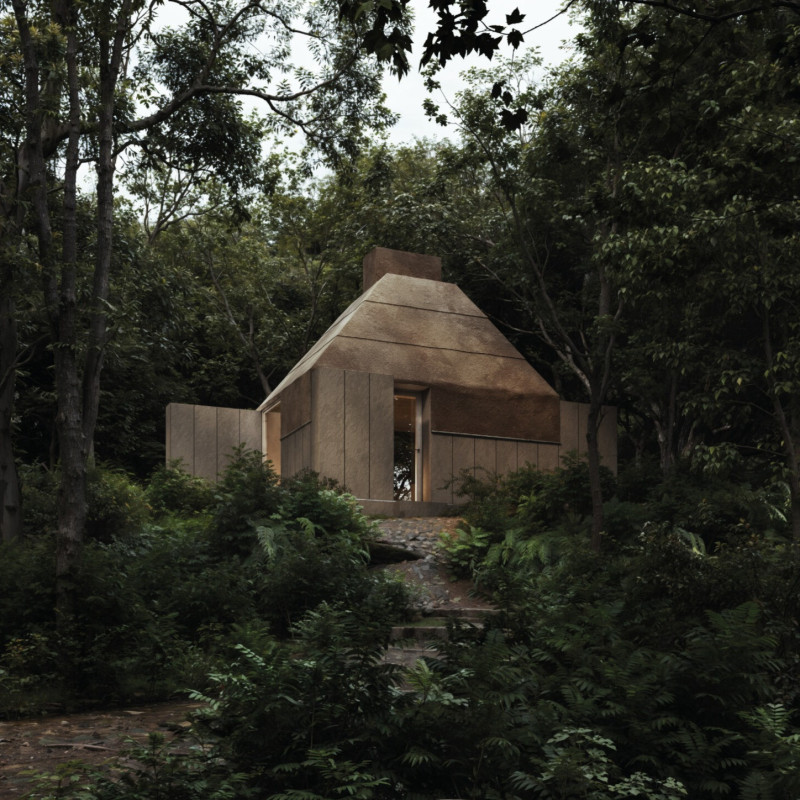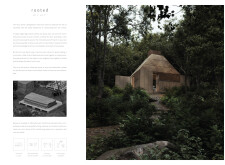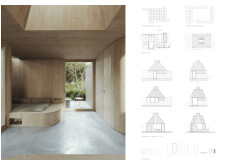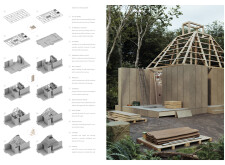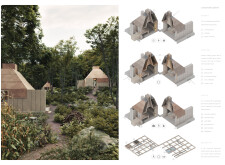5 key facts about this project
### Project Overview
The "Rooted" DIY kit represents a micro home initiative aimed at fostering a connection with nature while enabling individuals to partake in the construction of their living spaces. Situated in diverse environments, the project seeks to blend innovative technology with traditional craftsmanship, promoting sustainable living and community engagement. By encouraging users to build their own homes, it instills a sense of ownership and collective involvement in the process.
### Architectural Form and Material Considerations
The design reflects a modern interpretation of conventional architectural forms, characterized by a pitched roof that aligns with traditional cabin aesthetics. This configuration not only integrates with the surrounding landscape but optimizes water runoff management through its roofing materials, including canvas and shingles.
The project's material palette emphasizes sustainability, featuring sustainably sourced timber, fiber cement panels for durable cladding, and canvas for the lightweight roof. Concrete serves as the foundation, ensuring structural integrity and resilience. This thoughtful selection highlights a commitment to durability and ecological responsibility.
### Spatial Configuration and User Experience
Internally, the layout prioritizes functionality and flexibility, accommodating essential living areas while maximizing spatial efficiency. The built-in seating serves a dual purpose as storage, enhancing the livability of the space. An open-plan kitchen facilitates social interaction, acting as a central gathering area, while the sleeping quarters are designed for privacy, promoting a peaceful environment.
Natural light and ventilation are key components of the design, with strategically placed windows and skylights enhancing the indoor environment. This approach fosters a seamless connection to the outdoors, allowing residents to experience the surrounding ecosystem.
### Sustainability and Energy Efficiency
The project incorporates renewable energy solutions, including photovoltaic solar panels, which support on-site energy generation and reduce dependence on external sources. Water management systems facilitate sustainable practices through rainwater collection and greywater recycling, addressing both water conservation and management needs.
Passive cooling strategies contribute to temperature regulation within the home, reinforcing the commitment to ecological efficiency. Overall, the design reflects a comprehensive approach to sustainability, addressing both environmental and community-focused aspects of modern living.


